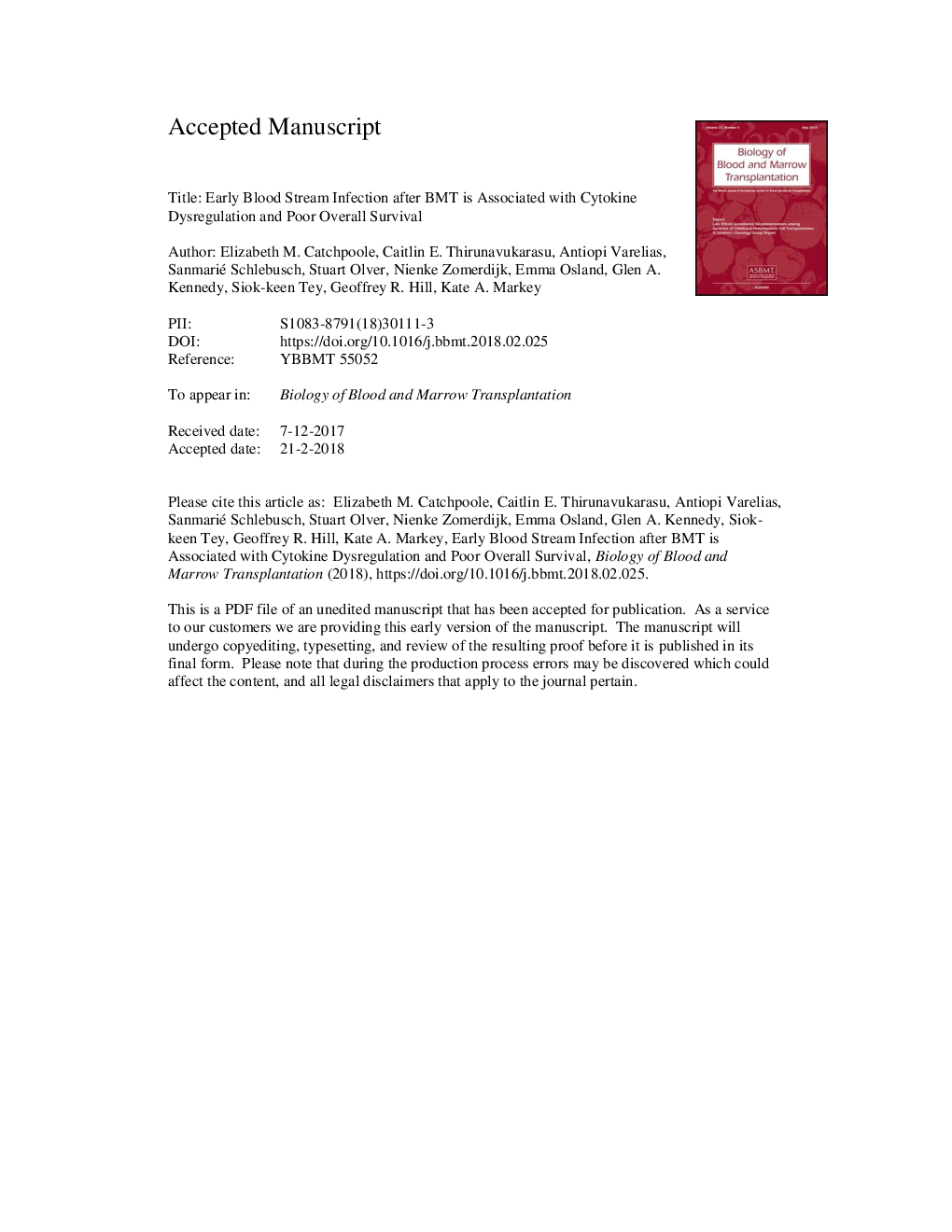| Article ID | Journal | Published Year | Pages | File Type |
|---|---|---|---|---|
| 8429691 | Biology of Blood and Marrow Transplantation | 2018 | 25 Pages |
Abstract
The key complications of allogeneic bone marrow transplantation (BMT) remain graft-versus-host disease (GVHD) and opportunistic infection. We have analyzed the blood stream infections (BSIs) occurring between day â7 and day 100 in a cohort of 184 adult patients undergoing allogeneic BMT in our center. A total of 167 of the 184 patients (91%) had blood cultures collected, and 69 (38%) patients had a confirmed BSI. Enterobacteriaceae, Pseudomonas aeruginosa, Enterococcus spp., and viridans Streptococcus spp. were the most commonly isolated organisms. Gender, conditioning (myeloablative versus reduced intensity), and donor type (sibling versus unrelated) did not differ significantly between those with and without confirmed BSI. Elevated temperature (>38°C) at the time of culture collection was associated with an almost 2-fold increased likelihood of returning a positive blood culture. The absence of a BSI was associated with a significant improvement in overall survival at 2 years, due to a significant reduction in nonrelapse mortality predominantly unrelated to the primary BSI. The presence of a BSI before engraftment was associated with the dysregulation of IL-6 and IL-8. Our findings suggest that BSI early after BMT defines a group of high-risk patients with enhanced cytokine dysregulation and poor transplant outcome.
Related Topics
Life Sciences
Biochemistry, Genetics and Molecular Biology
Cancer Research
Authors
Elizabeth M. Catchpoole, Caitlin E. Thirunavukarasu, Antiopi Varelias, Sanmarié Schlebusch, Stuart Olver, Nienke Zomerdijk, Emma Osland, Glen A. Kennedy, Siok-keen Tey, Geoffrey R. Hill, Kate A. Markey,
